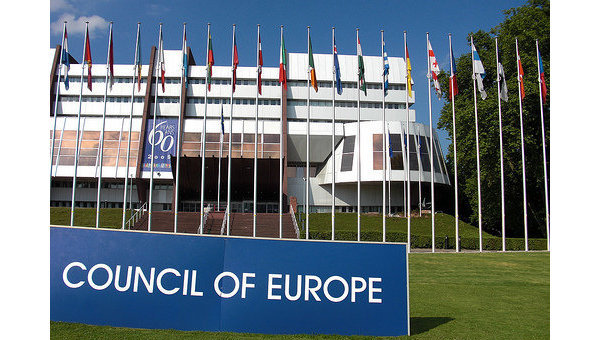
 A Parliamentary Assembly of the Council of Europe co-rapporteur has called for a thorough review of Russia’s "foreign agents” NGO law, at a meeting with members of Russia's upper house in Moscow.
A Parliamentary Assembly of the Council of Europe co-rapporteur has called for a thorough review of Russia’s "foreign agents” NGO law, at a meeting with members of Russia's upper house in Moscow.Russia passed a highly controversial law which took effect in November 2012 requiring politically-active NGOs receiving foreign funding to register as "foreign agents.” Once registered, these NGOs face heightened scrutiny.
Theodora Bakoyannis, who been on a three-day fact-finding visit to Yaroslavl and Moscow with PACE’s co-rapporteurs for Russia Andreas Gross, called on Federation Council members on Thursday to amend the law.
NGOs in Russia, including international and foreign-funded organizations, feel they are being pressured by the new law, Bakoyannis said.
She warned that the law could give the international community the impression that Russia is persecuting NGOs, which "is unfair,” adding she does not think Moscow wants to create such an impression.
In April, Golos, an election monitoring NGO, became the first organization to be prosecuted under the new law, when it was fined for failing to register as a "foreign agent.” In June it was banned by the Justice Ministry from operating for six months for failing to register.
Other NGOs involved in apparently apolitical activities such as wildlife conservation and public health have also been targeted by prosecutors using the new law.
The Russian government insists the law is vital to protect Russia’s political life from foreign meddling.
An extensive report on Russia's compliance with its obligations and commitments to the Council of Europe was presented in the PACE last October.
Russia has been monitored for its compliance with its obligations and commitments since it joined the Council of Europe in 1996. In accordance with PACE procedure, monitoring reports are made every two years.



_jpg/250px-ElbeDay1945_(NARA_ww2-121).jpg)





